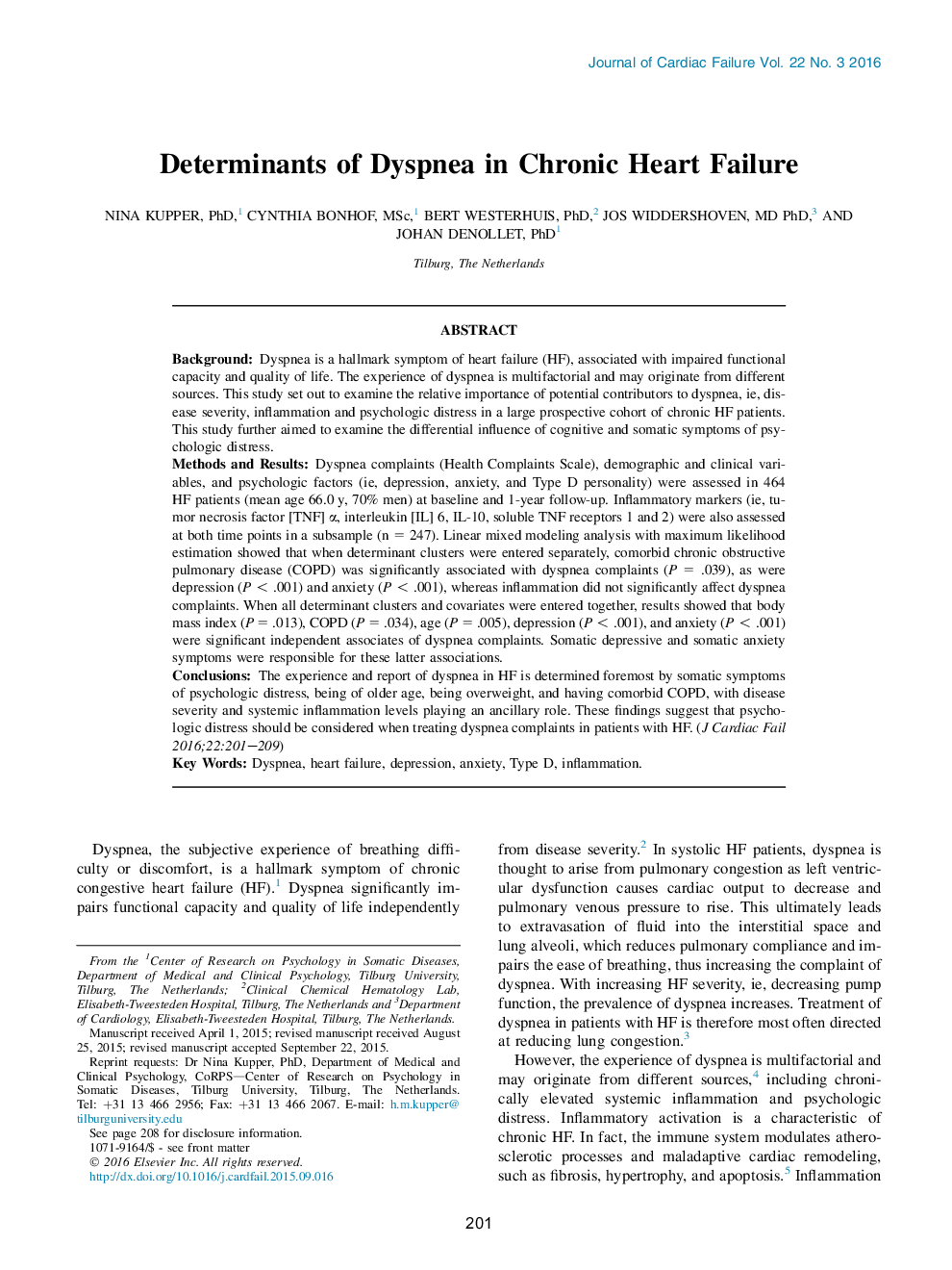| Article ID | Journal | Published Year | Pages | File Type |
|---|---|---|---|---|
| 2958595 | Journal of Cardiac Failure | 2016 | 9 Pages |
•We sought to examine multifactorial determinants of dyspnea complaints in HF.•Dyspnea is most strongly determined by somatic symptoms of depression and anxiety.•Systemic inflammatory markers were not associated with dyspnea complaints.•Age, BMI, and comorbid COPD were associated with dyspnea complaints.
BackgroundDyspnea is a hallmark symptom of heart failure (HF), associated with impaired functional capacity and quality of life. The experience of dyspnea is multifactorial and may originate from different sources. This study set out to examine the relative importance of potential contributors to dyspnea, ie, disease severity, inflammation and psychologic distress in a large prospective cohort of chronic HF patients. This study further aimed to examine the differential influence of cognitive and somatic symptoms of psychologic distress.Methods and ResultsDyspnea complaints (Health Complaints Scale), demographic and clinical variables, and psychologic factors (ie, depression, anxiety, and Type D personality) were assessed in 464 HF patients (mean age 66.0 y, 70% men) at baseline and 1-year follow-up. Inflammatory markers (ie, tumor necrosis factor [TNF] α, interleukin [IL] 6, IL-10, soluble TNF receptors 1 and 2) were also assessed at both time points in a subsample (n = 247). Linear mixed modeling analysis with maximum likelihood estimation showed that when determinant clusters were entered separately, comorbid chronic obstructive pulmonary disease (COPD) was significantly associated with dyspnea complaints (P = .039), as were depression (P < .001) and anxiety (P < .001), whereas inflammation did not significantly affect dyspnea complaints. When all determinant clusters and covariates were entered together, results showed that body mass index (P = .013), COPD (P = .034), age (P = .005), depression (P < .001), and anxiety (P < .001) were significant independent associates of dyspnea complaints. Somatic depressive and somatic anxiety symptoms were responsible for these latter associations.ConclusionsThe experience and report of dyspnea in HF is determined foremost by somatic symptoms of psychologic distress, being of older age, being overweight, and having comorbid COPD, with disease severity and systemic inflammation levels playing an ancillary role. These findings suggest that psychologic distress should be considered when treating dyspnea complaints in patients with HF.
